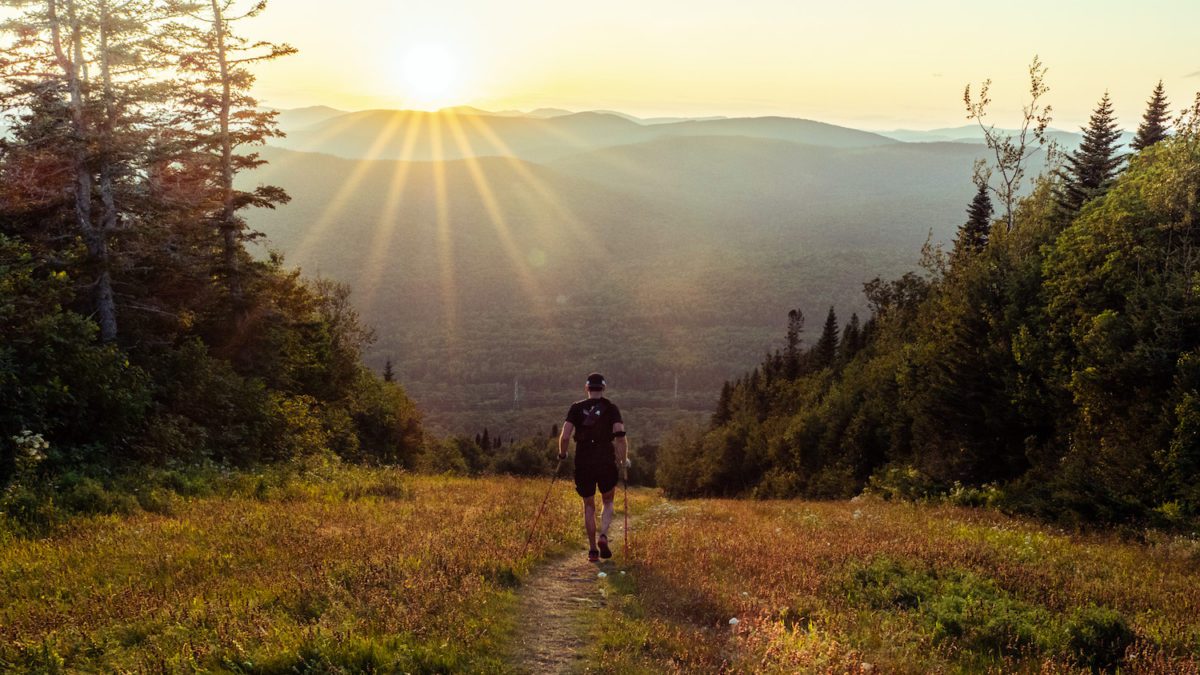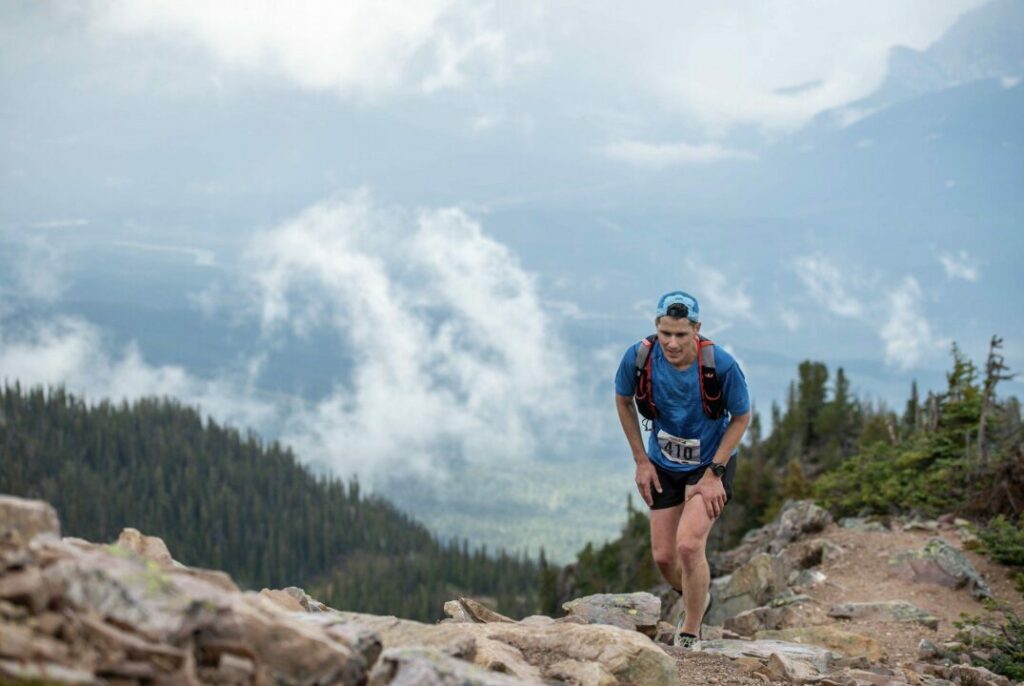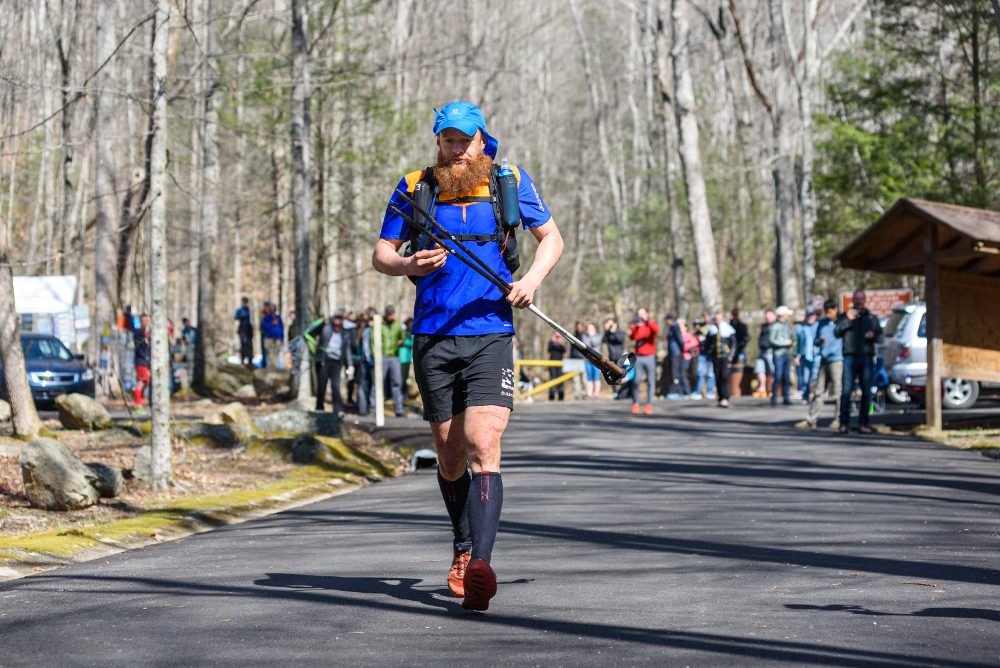Top 6 reasons ultrarunners are a breed apart
Ultrarunners' brains might be wired differently (how else to explain it?)
 Photo by:
Jean-Sébastien Chartier-Plante
Photo by:
Jean-Sébastien Chartier-Plante
Ultrarunners are pretty unique athletes. How many people are willing to run 50K, 100K, 100 miles or more? The answer is not a lot, which is why ultrarunning is so different from other sports. There are things that ultrarunners do that no other athletes (not even short-distance runners) understand. Don’t believe us? Take a look at these few differences between ultrarunning and other sports.
Eating contests
To run an ultramarathon, you have to train well, but when race day arrives, your success will come down to how much you can eat–because after you’ve been running for several hours, your digestive system might be a little out of whack (and what goes in has been known to come back out). If you can keep enough nutrition down to keep your energy levels high for the entire race, you’ll do well. To do that, ultrarunners will eat some pretty random things on the race course (flat Coke and scalloped potatoes, anyone?), besides your classic energy gels and electrolyte drinks. Athletes in other sports are very careful about what they eat or drink before and during competitions, but for ultrarunners, it seems like pretty much anything will work as fuel to get them to the finish line.
triathletes: “i only use maurten gels for my race nutrition during the second half of the bike when racing an ironman 70.3 and it’s above 68 degrees outside”
ultra runners: “hell ya, i dipped that cheese quesadilla into chicken broth at mile 80”
— taggart (@taggartvanetten) March 7, 2023
Weird sleeping habits
A basketball player wouldn’t take a courtside nap, just like a hockey player would never go to sleep on the bench or in the penalty box, but that’s not the case with ultrarunners. If you’re in a race that will take you more than a day to complete, you’re going to get pretty exhausted on the course, and that might mean you’ll need to take a nap break at some point–even if it means lying down by the side of the trail, or in a ditch, for a few minutes of shut-eye. (It’s called a dirt nap, for the uninitiated.) Ultrarunners get pretty good at sleeping anywhere and for however long, so they can re-energize and get back to racing.
No rush
In most sports, you’re encouraged to go as fast as possible, because your speed will be rewarded with a touchdown, goal, basket or some other form of points. In ultrarunning, athletes aim to complete each race in good time, but there’s no rush. In fact, going too fast will only hurt your result and jeopardize your chances of finishing the race at all. Ultrarunners quickly learn how to find a comfortable pace that they can hold for hours upon hours (or even days) of running and power-hiking.

No end
While most ultramarathons have set distances, some events are open-ended and go as long as it takes until only one runner is left standing. These are known as backyard ultras, and they task competitors with running a 6.71-km (4.17-mile) lap every hour for as many hours as they can. One by one, athletes will drop out of the race, either because they can’t go any longer or because they don’t complete a lap before the hour is up. Can you think of any other sport with this last-runner-standing, no-end-in-sight format? Didn’t think so.
No schedule
The Barkley Marathons is one of the most infamous ultramarathons on the planet, but despite its cachet, it is incredibly secretive. The race’s start date isn’t even public knowledge until the athletes are at the start line. This would never fly in other sports. The NHL couldn’t tell players to be on-call and ready for a random start date for a game, but in the world of ultramarathons, this system works (for the Barkley Marathons, at least).

Get emotional
After running 100 miles, you’re going to be beaten down, both physically and mentally. Because of this mental wear, you may burst into tears at any moment. In most sports, crying may be a sign of weakness, but in ultras, it’s pretty normal. No one’s going to judge you, and who knows, if they see you crying they may join you.


